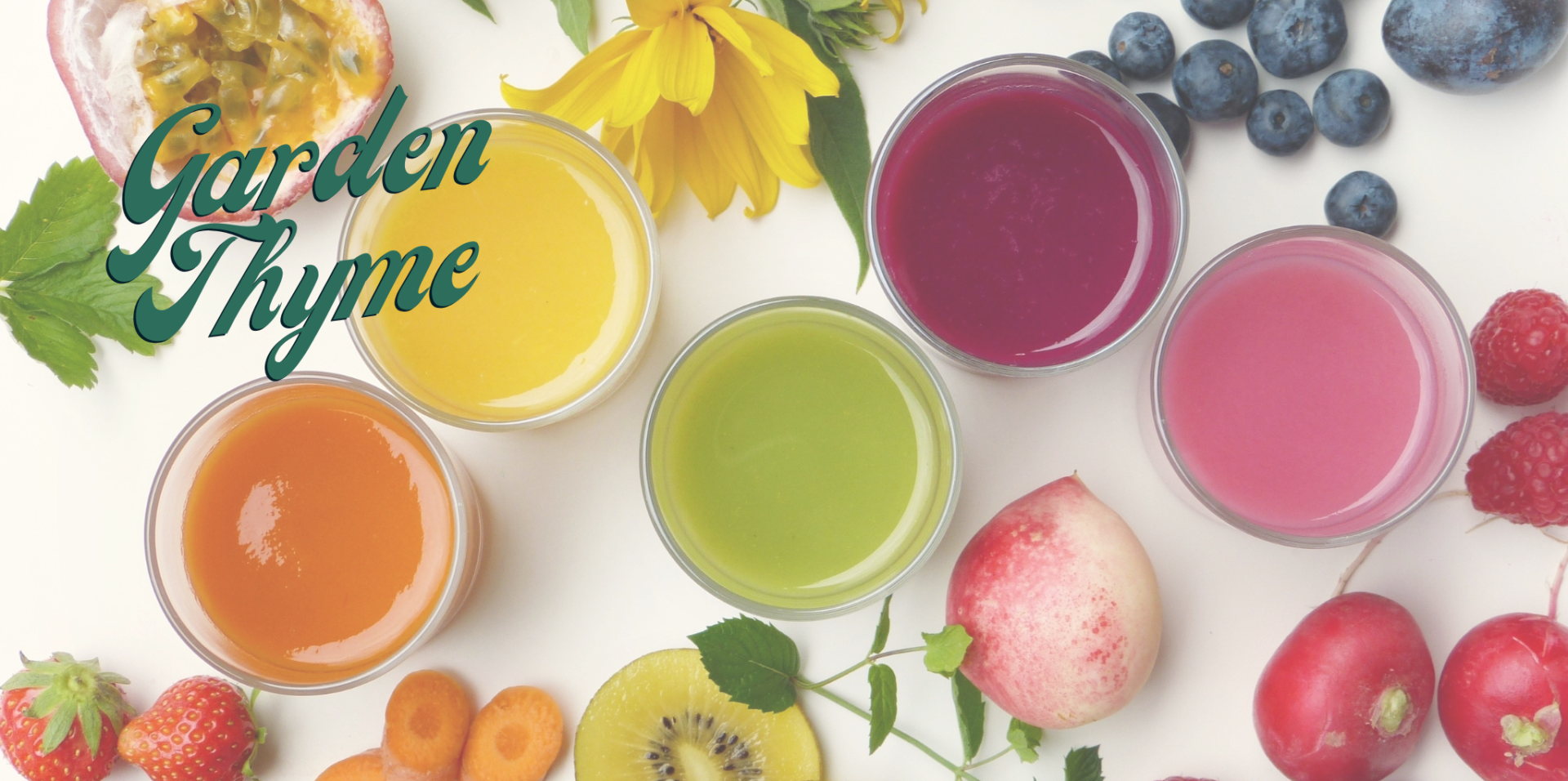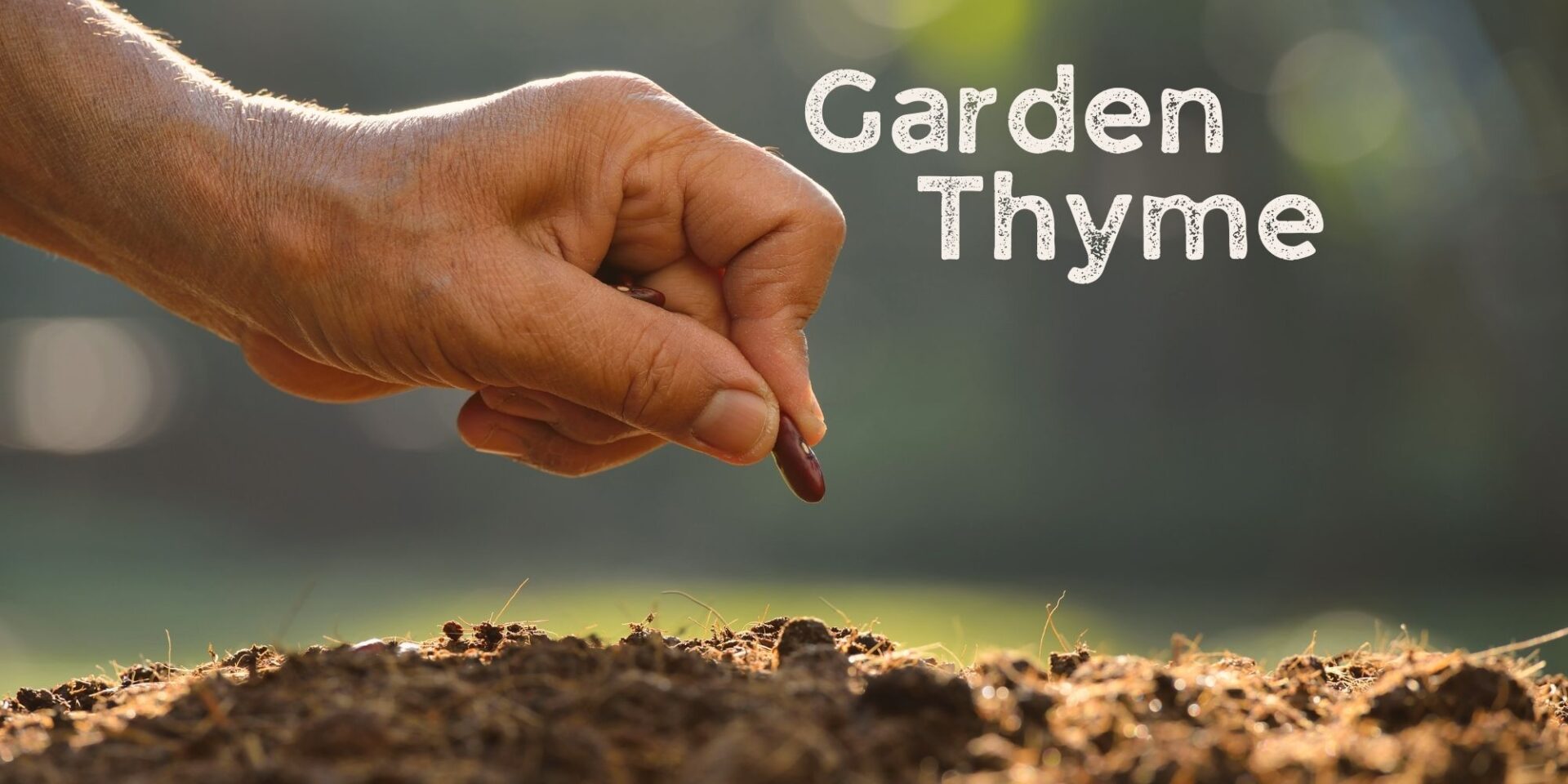Garden Thyme: Superfood Smoothies for Summer
Summer is beginning and temperatures are rising. On hot summer days there is nothing quite like a delicious smoothie to cool you down and cheer you up.
The definition of a simple fruit smoothie is a drink created in a blender with a liquid base (usually milk or a dairy alternative, yogurt, and/or fruit juice), other ingredients such as fruits and sometimes ice. Fruit smoothies are smooth, cooling, delicious, convenient and easy to prepare and they also prevent dehydration and provide some nutrients and fiber.
Healthy Smoothies
Healthy (or healthier) smoothies can be made by using low fat and low sugar options and adding other ingredients such as nuts, nut butters, nut milks, cottage cheese, various seeds, oats, avocado, and cacao, etc. These can easily be customized to meet various health needs.
Superfood Smoothies
Superfood smoothies take smoothies to the next level. They are made by incorporating nutrient-dense superfoods, including vegetables, most of which can be grown in home gardens. Thousands of recipes exist and include both sweet and savory smoothies; there are ones that will please even the pickiest eater. Nutrient-dense superfoods that can be used in smoothies include:
Dark leafy greens – one of nature’s best superfoods – contain antioxidants, vitamins, enzymes and other nutrients
Spinach: a superhuman food (think Popeye) – vitamins A, B, K, C, iron, antioxidants and minerals
Kale: rich in fiber, manganese, vitamins A, B, K, C and omega-fatty acid, potassium, calcium, copper
Swiss Chard: vitamins A, K, C, manganese, magnesium, and high in fiber
Carrots: rich in vitamins A, K, B6 and biotin, beta carotene, potassium
Beetroot: good source of vitamin C and fiber, folate, manganese, and nitrates
Cucumber: antioxidants and anti-inflammatory properties; promotes hydration
Broccoli: (yes, even broccoli): rich in vitamins K, C, antioxidants, minerals like potassium and iron, manganese, folate
Avocados: potassium, magnesium, vitamins B6, C, and fiber
Garlic: good source of manganese and vitamin B6
Fruits and Berries that are high in fiber and vitamins
Strawberries – vitamins B, C, antioxidants and folate
Cherries: melatonin
Peaches: many vitamins and minerals such as potassium, copper, manganese, and phosphorous
Raspberries: fiber, vitamin C and antioxidants
Apple: high in antioxidants, fiber and vitamin C
Melons:
Cantaloupe: antioxidants and anti-inflammatories
Watermelon: vitamins C, B, high in vitamin A, and minerals
Mint: good source of vitamins and antioxidants
Ginger: anti-inflammatory and antibiotic properties
Tomatoes: vitamins A, C, potassium
Cauliflower: vitamins C, K, fiber, protein, folate – can be used to reduce fat in and thicken smoothies
GROW A SMOOTHIE GARDEN
Nutrient-dense superfoods for smoothies can be grown in the ground; many can also be grown in containers. An advantage to containers is that they can be brought indoors during inclement weather. To have a successful smoothie garden:
- Grow foods you will enjoy in your smoothies.
- Make regular plantings of some varieties to ensure that they are available all year.
- Freeze any produce you can’t use right away; they will make good smoothies if used directly from the freezer.
Reasons to grow a smoothie garden include
- Convenience – Limit the number of trips to the store for ingredients.
- Saving money – Produce in stores is expensive.
- Having safer produce – You can avoid pesticides and chemicals.
- Reducing waste – Pick only what you need, when you need it and freeze the rest.
- Availability – Grow produce that is difficult to find.
Having more nutrient-dense produce – Fresher produce is more nutrient-dense. Pick produce at the peak of ripeness, use what you can and freeze the rest as soon as possible to retain nutrients.
Motivation and ease of preparation – You are more likely to make nutritious smoothies if ingredients are readily available.






